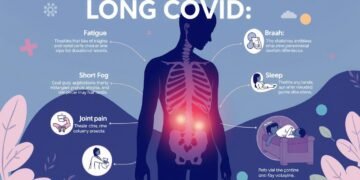In today’s fast world, our bodies often find it hard to keep hormonal balance. Stress, toxins, and bad food choices can mess with our hormones. But, we can naturally reset our hormone health and get back to feeling good.
Welcome to the Hormone Health Reset guide. It’s here to help you control your hormones and get to optimal wellness. We’ll look at the science of hormone health, find out what disrupts it, and show you natural ways to balance your body.

Key Takeaways
- Understand the importance of maintaining a healthy hormonal balance for overall wellness.
- Identify the key hormones and their vital functions in the body.
- Recognize the signs and symptoms of hormone imbalance.
- Explore the science behind natural hormone health restoration.
- Discover effective strategies to address common hormonal imbalances.
Understanding Hormone Health and Natural Balance
Hormones are key chemical messengers in our bodies. They help control many functions, like metabolism and mood. Knowing about these hormones is the first step to keeping our hormones in balance.
Key Hormones and Their Functions
The endocrine system makes and sends out hormones. It has several glands, each making different hormones. Here are some important ones:
- Estrogen: Helps with female growth and keeps bones strong.
- Testosterone: Important for muscle growth and sex drive in both men and women.
- Thyroid hormones: Control metabolism, energy, and body temperature.
- Cortisol: Manages stress and energy levels.
- Insulin: Helps control blood sugar and fat storage.
Signs of Hormone Imbalance
When hormones get out of balance, we can feel it. Symptoms include:
- Mood swings, anxiety, or depression
- Unexplained weight changes
- Fatigue, low energy, or trouble sleeping
- Irregular menstrual cycles or hot flashes
- Decreased libido or sexual function
The Impact on Overall Wellness
Hormone imbalances can really affect our health. They can lead to serious problems, like hormone replacement therapy and metabolic disorders. Keeping our hormones balanced is key for good health.
“Hormones are the body’s chemical conductors, orchestrating our physical, mental, and emotional experiences.”
The Science Behind Hormone Health Reset
Getting hormones in balance is a delicate task. It’s important to know the science behind it for a successful reset. The endocrine system in our body makes and controls hormones. These hormones are key for many body functions, like energy, mood, and sex drive.
Natural hormone balancing is at the heart of hormone health reset. This method helps the body make, use, and break down hormones well. By fixing the causes of hormone imbalances, people can get their hormones back in balance. This leads to better health and well-being.
The HPA axis is a key part of hormone health reset. It’s a network of glands and hormones that handle stress and make important hormones like cortisol and estrogen. By making lifestyle changes and using natural supplements, people can help the HPA axis work better. This improves hormone balance.
| Key Hormone | Function | Imbalance Symptoms |
|---|---|---|
| Estrogen | Regulates reproductive health, mood, and metabolism | Mood swings, weight gain, irregular periods |
| Testosterone | Responsible for muscle growth, libido, and energy levels | Low sex drive, fatigue, muscle loss |
| Cortisol | Manages the body’s stress response | Chronic fatigue, anxiety, weight gain |
Knowing the science of hormone health reset helps people make smart choices. This approach can improve overall health, boost energy, and increase vitality.
“Hormone health is the foundation for overall wellness. By addressing the root causes of imbalance, we can unlock the body’s natural healing potential.”
Common Causes of Hormone Imbalance in Modern Life
In today’s world, our hormones face many challenges. Environmental toxins, lifestyle habits, and diet choices can disrupt our hormones. Knowing these common causes is the first step to fixing your hormone imbalance and estrogen dominance.
Environmental Factors
Endocrine-disrupting chemicals (EDCs) are found in plastics, personal care products, and pesticides. They can harm our hormonal systems. These chemicals can act like or block our body’s natural hormones, causing imbalances.
Lifestyle Contributors
Stress, not enough sleep, and being inactive can upset our hormones. Stress lowers cortisol, a key hormone. Not sleeping enough and not moving enough make these problems worse.
Dietary Influences
What we eat affects our hormones. Eating too much processed, hormone-filled food can mess with our hormone levels. But, eating a diet full of plants can help keep our hormones in check.
| Environmental Factors | Lifestyle Contributors | Dietary Influences |
|---|---|---|
| Endocrine-disrupting chemicals (EDCs) | Chronic stress | Processed, hormone-laden foods |
| Plastics, personal care products, pesticides | Lack of sleep | Conventional dairy and meat |
| Mimic and interfere with natural hormones | Sedentary behavior | Nutrient-rich, plant-based diet |

By tackling these common problems, you can work towards fixing your hormonal balance. Stay tuned for the next part, where we’ll look at natural ways to manage your estrogen dominance.
Natural Solutions for Estrogen Dominance
Estrogen dominance is a common hormonal imbalance. It can cause weight gain, mood swings, and increase cancer risk. Luckily, there are natural ways to balance your estrogen levels and restore hormone harmony.
Eating the right foods is key. Foods like broccoli, cauliflower, and kale help break down and remove excess estrogen. Adding these greens to your meals can really help.
- Choose organic, hormone-free proteins to avoid extra estrogen from animal products.
- Eat more fiber-rich foods to help remove estrogen from your body.
- Reduce processed and high-sugar foods to keep your hormones in balance.
There are also natural supplements that can help with estrogen dominance. Supplements like DIM, indole-3-carbinol, and calcium-d-glucarate support healthy estrogen metabolism and detox.
“Balancing your hormones naturally is a holistic approach that can lead to improved overall health and well-being.”
Managing stress and getting enough sleep are also important. Yoga, meditation, and regular exercise help regulate stress and support hormone production.
By adding these natural solutions to your life, you can tackle estrogen dominance and promote natural hormone balancing. Remember, everyone is different. It might take some trial and error to find what works best for you.
Thyroid Health: The Master Regulator of Hormones
The thyroid gland is key to keeping hormones in balance. It’s vital for our health. Knowing about thyroid health helps fix hormone problems and boosts wellness.
Testing for Thyroid Issues
First, we check thyroid function with blood tests. Thyroid health tests include TSH, T4, and T3 levels. These tests show if hormones are balanced and how the thyroid is working.
Natural Thyroid Support Methods
- Eat foods full of iodine, selenium, zinc, and vitamins A, B, and C for thyroid health.
- Exercise regularly to help thyroid hormones stay in check.
- Reduce stress with meditation, yoga, or deep breathing.
- Try supplements like ashwagandha, Ginkgo biloba, or omega-3s for thyroid support.
Diet and Supplement Recommendations
Eating a diet full of thyroid-supporting nutrients is key. Include seaweed, fish, eggs, nuts, and greens. For extra help, consider iodine, selenium, or thyroid supplements.
| Nutrient | Role in Thyroid Health | Food Sources |
|---|---|---|
| Iodine | Essential for thyroid hormone production | Seaweed, fish, dairy, eggs |
| Selenium | Supports thyroid enzyme function and antioxidant protection | Brazil nuts, tuna, sardines, turkey |
| Zinc | Involved in thyroid hormone metabolism | Oysters, beef, chicken, legumes |
“Maintaining a healthy thyroid is essential for regulating hormonal balance and promoting overall well-being.”
Adrenal Fatigue and Stress Management
In the journey towards hormone health reset, it’s key to tackle adrenal fatigue. Adrenal fatigue happens when our adrenal glands can’t handle stress anymore. This affects our hormones and overall health.
Stress, whether it’s physical, emotional, or from the environment, harms our adrenal glands. Too much cortisol, our main stress hormone, can upset our hormones. This makes us tired, irritable, and unable to handle everyday tasks.
Strategies for Adrenal Support
- Manage stress with relaxation techniques like meditation, deep breathing, or yoga.
- Get enough sleep, aiming for 7-9 hours each night.
- Eat a diet full of whole, unprocessed foods to support your adrenal glands.
- Try adaptogenic herbs like ashwagandha, ginseng, or rhodiola to help with stress.
- Do regular, moderate exercise to help your adrenal glands and hormones.
By tackling adrenal fatigue and managing stress, you’re on the path to better hormone health reset. Taking care of your adrenal glands is a big step towards better health.

“Caring for our adrenal glands is essential for maintaining hormone balance and overall vitality.”
Balancing Testosterone Levels Naturally
Keeping testosterone levels healthy is key for both men and women. Imbalances can cause health issues. But, there are natural ways to keep your hormones in check.
Exercise and Hormone Production
Exercise is important for hormone balance. Strength training and HIIT can boost testosterone. Adding these workouts to your routine helps keep your testosterone levels healthy.
Nutrition for Testosterone Support
Your diet affects your natural hormone balancing. Eating foods that support testosterone is important. Here are some good choices:
- Healthy fats, such as avocados, nuts, and olive oil
- Protein-rich foods, like lean meats, eggs, and legumes
- Zinc-rich foods, including oysters, pumpkin seeds, and red meat
- Magnesium-rich foods, such as spinach, almonds, and dark chocolate
By eating right, you can help your body produce hormones naturally. This supports your overall health.

| Nutrient | Food Sources | Benefits for Testosterone |
|---|---|---|
| Zinc | Oysters, pumpkin seeds, red meat | Plays a crucial role in testosterone synthesis and metabolism |
| Magnesium | Spinach, almonds, dark chocolate | Helps regulate testosterone production and bioavailability |
| Vitamin D | Fatty fish, egg yolks, fortified foods | Supports the production and utilization of testosterone |
“Maintaining healthy testosterone levels is essential for overall well-being and vitality. By incorporating the right lifestyle and dietary strategies, you can naturally support your body’s hormone balance.”
Managing Menopause Symptoms Through Natural Methods
Women going through menopause often face uncomfortable symptoms. These can make daily life hard. Instead of just hormone replacement therapy (HRT), many look for natural ways to ease these changes. We’ll look at natural methods to help with menopause symptoms and keep hormones balanced.
Plant-based phytoestrogens are a great natural remedy for menopause. Foods like soy, flaxseeds, and red clover have these compounds. They can help with hot flashes, night sweats, and vaginal dryness. Adding these foods to your diet is a gentle way to manage symptoms.
Changing your lifestyle can also help with menopause. Exercise like yoga, Pilates, or brisk walking can reduce stress and improve sleep. It can also lessen hot flashes. Stress management, like meditation or journaling, helps with the emotional side of menopause.
“The key to managing menopause symptoms naturally is to find a holistic approach that addresses the root causes of hormonal imbalances.”
Herbal remedies like black cohosh, evening primrose oil, and St. John’s Wort can also help. They can improve mood, ease hot flashes, and balance hormones. Always talk to a healthcare professional before trying new herbal supplements, as they can interact with other medicines.
Exploring natural ways to manage menopause symptoms empowers women during this big life change. Remember, every woman’s experience is different. It might take some trying to find the right natural remedies for you.
PCOS Management and Hormone Balance
Polycystic Ovary Syndrome (PCOS) is a complex hormonal disorder. It can greatly affect a woman’s well-being. Luckily, natural ways can help manage PCOS symptoms and balance hormones.
Dietary Interventions
Changing your diet is key in managing PCOS. Eating low-glycemic, plant-based foods is beneficial. These include fiber, healthy fats, and lean proteins.
Foods like berries, leafy greens, avocados, and fatty fish are great. They provide essential nutrients for hormone balance.
Lifestyle Modifications
Changing your lifestyle is also important. Regular exercise, like strength training and cardio, helps. It improves insulin sensitivity and supports healthy hormones.
Stress management is also crucial. Yoga, meditation, and enough sleep help reduce stress’s impact on hormones.
Natural Supplements
Some natural supplements can help with PCOS management. Inositol, omega-3 fatty acids, and herbs like cinnamon and berberine are effective. They help regulate insulin, reduce inflammation, and improve ovarian function.
Always talk to a healthcare professional before starting any supplements.









































Discussion about this post